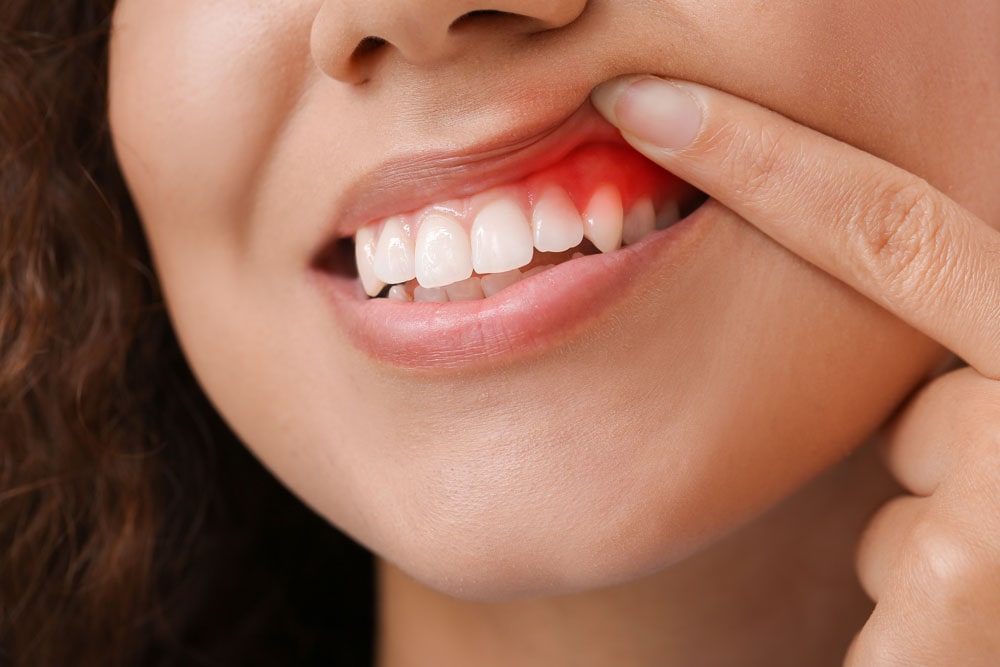What Is Periodontal Disease and How Is It Treated?

Did you know that periodontal (gum) disease is the leading cause of tooth loss in adults? The progressive condition affects millions of people worldwide, and because it is virtually pain-free in its early stages, it often goes undiagnosed and untreated. At Afton Dental, we emphasize the importance of prevention, early detection, prompt treatment, and ongoing management of gum disease to keep your smile healthy for many years to come.
What Is Periodontal Disease?
Periodontal disease is an infection of the gums and tissues surrounding and supporting your teeth. During your routine twice-a-year dental exams and cleanings, your trusted team at Afton Dental Always checks for early signs of periodontal disease to ensure prompt treatment before the condition causes any long-term impacts on your oral health.
What Are the Causes of Periodontal Disease?
Some of the leading causes of periodontal disease are pathogenic bacteria and poor oral hygiene. If plaque, a sticky film of bacteria that forms on the teeth, is not removed by regular brushing, flossing, and professional dental cleanings, it builds up and produces toxins that irritate the gums, causing inflammation and infection.
Aside from plaque buildup, risk factors for periodontal disease include smoking, crooked teeth, damaged dental work, and hormonal changes such as those that happen in pregnancy. Certain health conditions can also increase the risk of periodontal diseases, such as diabetes, as can some medications, such as steroids, calcium channel blockers, cancer therapy drugs, and oral contraceptives,
What Are the Symptoms of Periodontal Disease?
While it’s possible to have periodontal disease without symptoms, the early stage of gum disease, known as gingivitis, is often characterized by red, swollen, tender, or bleeding gums and persistent bad breath or a bad taste in the mouth.
As the condition progresses, the gums begin pulling away from the teeth, forming spaces called periodontal pockets that trap food particles, plaque, and bacteria. Patients often report pain when biting or chewing, changes in how their teeth fit together when they bite, or changes in how their partial dentures fit. The gum inflammation eventually destroys the bone and tissues supporting the teeth, leading to bone loss, loose teeth, and tooth loss.
How Is Periodontal Disease Treated?
Treatment options for gum disease will vary depending on the severity of the condition. We are pleased to offer non-surgical treatments, including deep cleanings known as scaling and root planing, as well as periodontal rinses. There are billions of bacteria in the mouth, and we need to treat the whole mouth, not just the areas around the teeth. Treating the harmful bacteria inside the mouth will help fend off the disease.
If the condition is advanced, we may recommend periodontal or laser gum surgery. We also offer dental implants to replace teeth lost by periodontal disease to restore your healthy, functional smile.
We cannot overemphasize the importance of meticulous home oral hygiene to maintain your gum health. Make sure to brush your teeth at least twice daily, floss daily, and rinse using antimicrobial mouthwash. Together we can stop the progression of gum disease and its devastating effects on your oral health.
Periodontal Disease Treatment Near Me
Contact Afton Dental in Concord, NC, to learn more about the prevention and treatment of periodontal disease. Our dedicated team is committed to providing quality periodontal care to maintain long-term healthy smiles. Call us at 704-788-1717 to schedule your appointment today!
